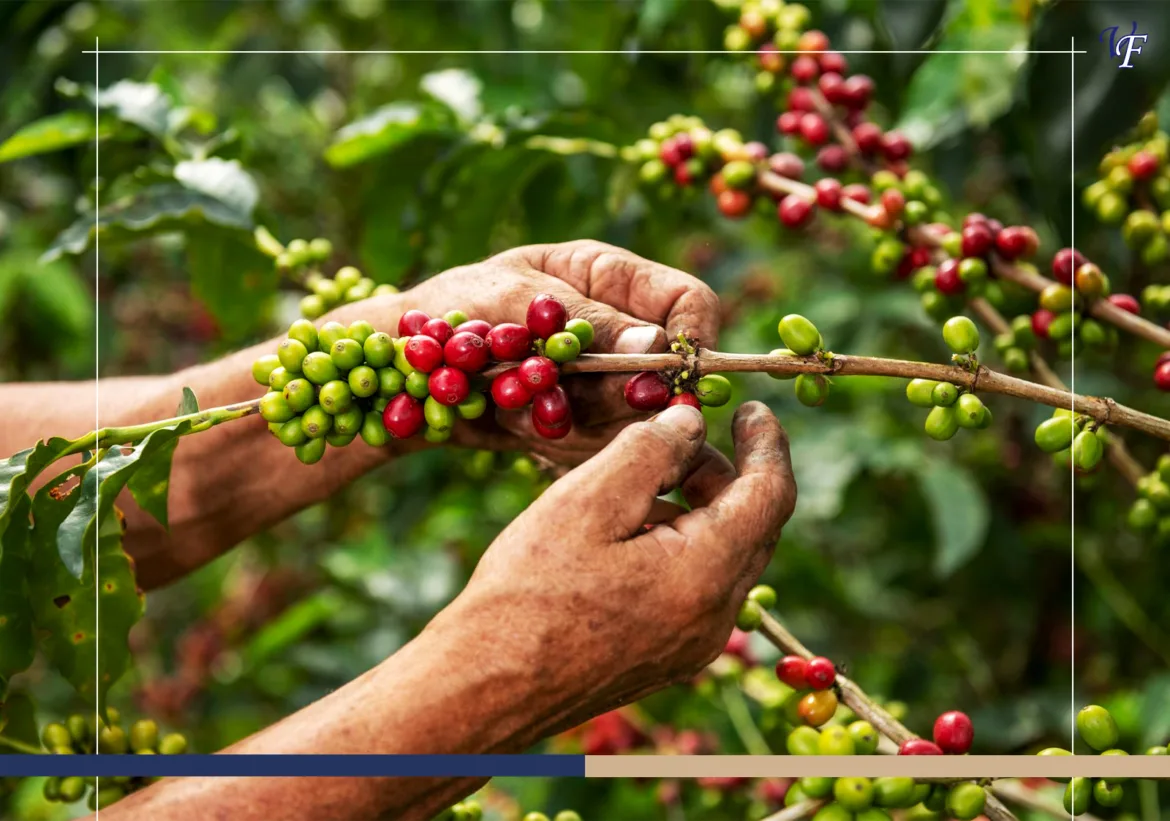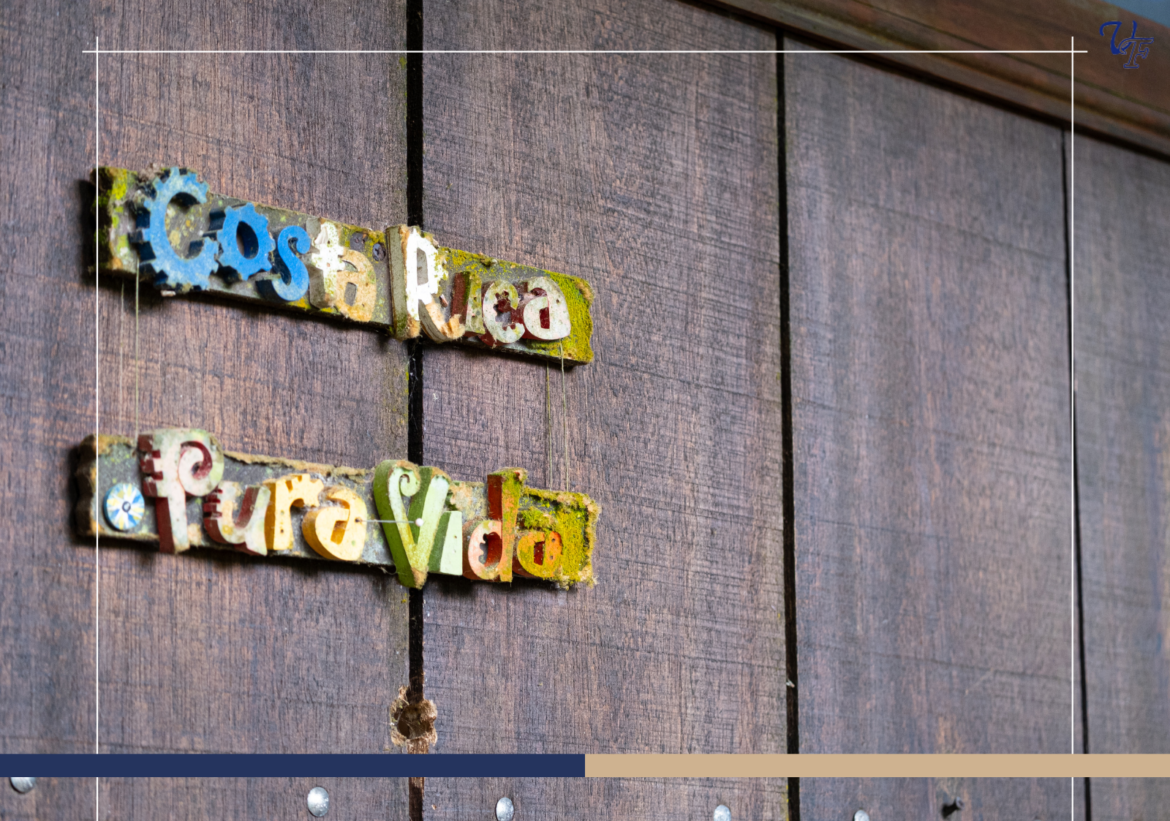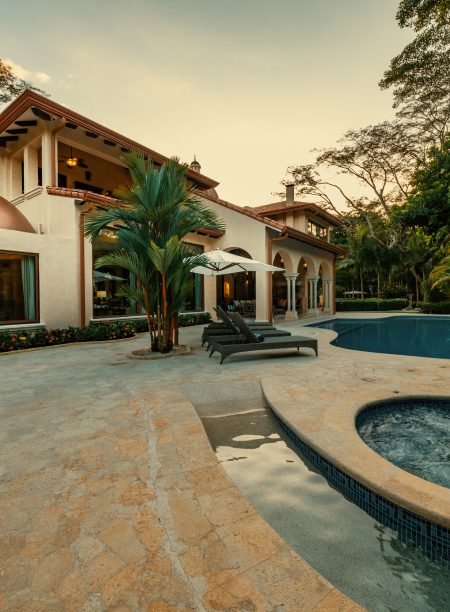Imagine waking up to the gentle rustle of lush green leaves and the rich, inviting aroma of freshly brewed coffee. This isn’t just any coffee; it’s a cup filled with the essence of Costa Rica – a tiny yet vibrant country cradled between two oceans and blessed with verdant hills and valleys perfect for coffee cultivation.
Costa Rican coffee isn’t just a beverage; it’s a journey, a story in every sip, revealing the heart of the tropics and the soul of its people. But there’s more to this story than just exceptional flavor. Behind every cup of Costa Rican coffee lies an extraordinary commitment to the planet and its people.
This blog dives into the coffee farms, unraveling the mystery of how this small nation not only produces some of the world’s finest beans but does so by adhering to practices that honor the earth and uplift its inhabitants.
The Charm of Tropical Coffee
In Costa Rica, coffee is more than a crop; it’s a heritage interwoven with the nation’s identity. The beans, nurtured by the mild climate, volcanic soils, and the perfect balance of rainfall and sunshine, encapsulate a symphony of flavors that resonate with coffee connoisseurs globally. But beyond its irresistible taste and aroma, coffee in Costa Rica embodies a deeper narrative – one of sustainability, respect for nature, and a forward-thinking approach to farming.
Sustainable Practices: A Way of Life
Why do Costa Rican farmers embrace sustainable coffee farming with such passion? The answer lies in their profound connection with nature. Here, the lush rainforests, diverse wildlife, exotic flora and fauna, and vibrant communities are as much a part of the landscape as the coffee plantations themselves. Farmers understand that preserving this ecological paradise is not just beneficial but essential for their livelihood and future generations.
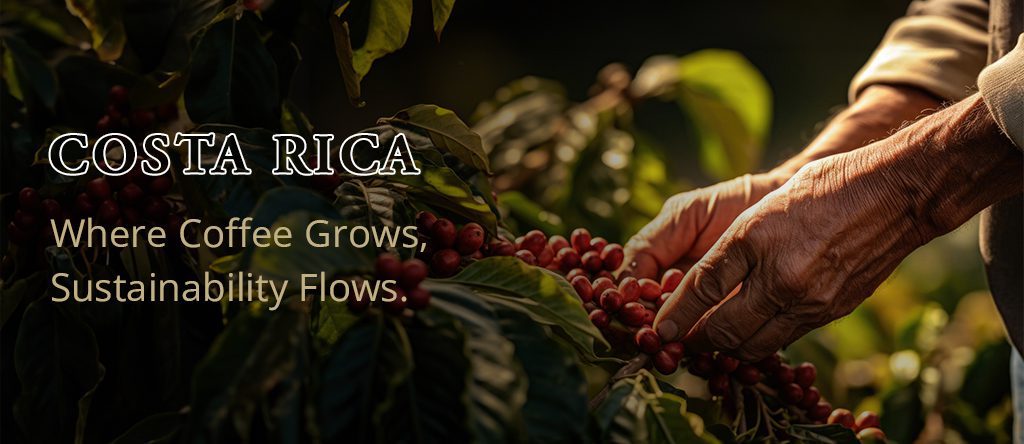
How Sustainability Shapes Every Bean
From the shade-grown techniques that protect wildlife habitats to the organic methods that forego harmful chemicals, every step in coffee farming in Costa Rica is a testament to the harmony between agriculture and nature.
This blog aims to unfold these layers of sustainable practices, showcasing how they contribute not just to the quality of the coffee but to the health of the planet and the well-being of the farming communities.
Join us as we explore the green mountains and fertile valleys of Costa Rica, where every coffee bean tells a story of environmental stewardship, social responsibility, and a vision that transcends beyond mere farming. Discover how sustainability isn’t just a coffee farming practice but a way of life here, ensuring that every cup you savor supports a legacy of respect and care for the world we live in.
Exploring Sustainable Coffee Practices in Costa Rica
Costa Rica coffee farming is not just about producing an exceptional brew; it’s a beacon of sustainability and environmental responsibility. Let’s delve deeper into the remarkable Coffee farming practices that are setting new standards in the coffee industry.
Practice 1: Shade-Grown Coffee
What’s Happening: In the lush landscapes of Costa Rica, coffee plants are nestled under the protective embrace of native trees. This harmonious interplay between the trees and coffee plants creates a micro-ecosystem where each element supports the other.
Why It Matters: This canopy of trees provides more than shade. It’s a sanctuary for birds, insects, and wildlife, creating a biodiverse haven. The roots help anchor the soil, preventing erosion, while the foliage adds a layer of organic matter. Moreover, this method plays a crucial role in carbon sequestration, a natural way of capturing and storing atmospheric carbon dioxide, which is vital in our fight against climate change.
Practice 2: Organic Farming
What’s Happening: Coffee farms are turning their backs on synthetic chemicals. Instead, they’re embracing organic practices like using natural compost and green manure and practicing crop rotation to nourish the soil and control pests.
Why It Matters: This shift to organic isn’t just about keeping harmful chemicals out of our coffee and the environment. It’s about nurturing the soil’s health, fostering a balanced ecosystem, and producing coffee that’s as natural as it can get. This approach ensures that every cup you drink supports a healthier, more sustainable earth, making Costa Rican coffee the best in the world.
Practice 3: Water Conservation
What’s Happening: Coffee farmers are adopting innovative irrigation methods in a country where water is as precious as gold. Drip irrigation, which delivers water directly to the plant’s roots, is becoming increasingly popular, significantly reducing water wastage.
Why It Matters: By optimizing water use, these practices ensure that every drop is used judiciously, conserving a vital resource and ensuring its availability for future generations. This careful water management is crucial in preserving natural water reserves in the country.
Practice 4: Fair Labor Practices
What’s Happening: The coffee industry in Costa Rica recognizes that its greatest asset is its people. Hence, ensuring fair wages and safe, humane working conditions is at the forefront of its operations.
Why It Matters: Fair labor practices signify a commitment to the social aspect of sustainability. By looking after the welfare of their workers, Costa Rican coffee farms are investing in a happier, more productive workforce. This uplifts the community and ensures a higher quality of coffee production.
Practice 5: Renewable Energy
What’s Happening: Many farms now use solar panels and hydroelectric plants to power their operations while embracing renewable energy.
Why It Matters: This transition to renewable energy sources is a game-changer. It reduces reliance on fossil fuels, cuts down greenhouse gas emissions, and sets a precedent for sustainable energy use in agriculture. Using renewables, coffee farms contribute to a cleaner, more sustainable future.
Practice 6: Water Treatment
What’s Happening: The coffee production process generates wastewater, which, if not handled properly, can be detrimental to the environment. This water is treated meticulously in Costa Rica before being released into nature.
Why It Matters: This careful treatment of wastewater safeguards rivers, streams, and ecosystems from pollution. It’s a crucial step in preserving the abundant natural water sources in the country and ensuring that the biodiversity within these aquatic systems remains unharmed and vibrant.
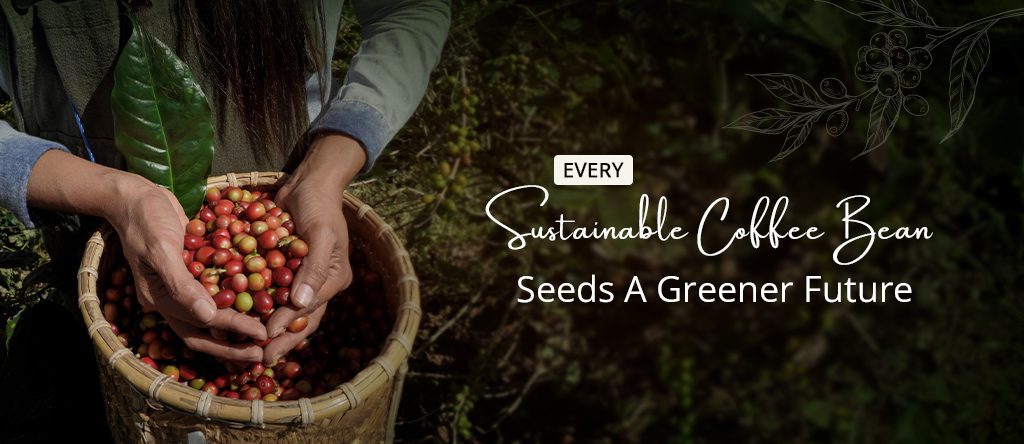
Practice 7: Soil Conservation
What’s Happening: Coffee farms here are often found on slopes, with a high risk of soil erosion. Techniques like terracing, cover cropping, and the use of organic mulches are widely employed to protect and nurture the soil.
Why It Matters: These soil conservation strategies are vital in maintaining the structure and fertility of the soil. Healthy soil leads to healthy coffee plantations in Costa Rica, which means better coffee in your cup. Moreover, these practices ensure that the land remains productive and sustainable for future generations of coffee growers.
Practice 8: Integrated Pest Management (IPM)
What’s Happening: Embracing the ethos of working with nature, coffee farmers in Costa Rica utilize IPM strategies, which include employing beneficial insects to control pests, using disease-resistant coffee varieties, and adopting agricultural practices that naturally reduce pest infestations.
Why It Matters: IPM minimizes the need for chemical pesticides, which can harm the environment and human health. Farmers rely on nature’s checks and balances to ensure a healthier product and ecosystem.
Practice 9: Biodiversity Conservation
What’s Happening: Coffee farms in Costa Rica are more than just plantations; they are havens for wildlife. By preserving native trees and maintaining natural habitats within and around their farms, these farmers protect an incredible variety of plants and animals.
Why It Matters: This commitment to biodiversity conservation is critical in maintaining the ecological balance. It supports the survival of local species, many of which are crucial pollinators and integral to the overall health of the ecosystem.
Practice 10: Community Development
What’s Happening: Recognizing that the well-being of their coffee is intrinsically linked to the well-being of their workers, coffee farms here often invest in community initiatives. This includes providing access to education, healthcare, and other essential services for their workers and families.
Why It Matters: These efforts in community development ensure that the benefits of the coffee industry extend beyond the farms, fostering sustainable growth and improving the quality of life for entire communities. It’s a holistic approach that enriches not just the land and the crops but every individual connected to the coffee production process.

Conclusion
In exploring the sustainability of Costa Rican coffee, we uncover a narrative that extends beyond its rich and aromatic brews. This journey through the conscientious practices of coffee farmers reveals a profound commitment to environmental stewardship, community upliftment, and the art of coffee cultivation. It’s a story that resonates in every sip of this beloved beverage.
But to truly capture the spirit of this story, one must experience it firsthand. This is where Villa Firenze steps in as luxurious accommodation and a gateway to the authentic tropical coffee experience.
At Villa Firenze, your day begins with the refreshing aroma of sustainably sourced, locally grown coffee — a taste that’s both exquisite and ethically satisfying.
Beyond savoring this exceptional coffee, Villa Firenze invites you to deepen your understanding and appreciation through our specially curated Coffee Tours. These tours are more than a simple walk through the coffee plantations; they are an immersive journey into the heart of tropical coffee culture. You’ll witness the sustainable methods you’ve read about, engage with passionate farmers, and see the lush, biodiverse environments that shape this unique coffee.
Ours is one of the safest and most private all-inclusive villas in Costa Rica. It offers more than just a stay; it’s a destination where coffee lovers, nature enthusiasts, and cultural explorers converge to experience the genuine essence of Costa Rica.
Here, every cup of coffee is a journey, and every moment is a memory in the making.


